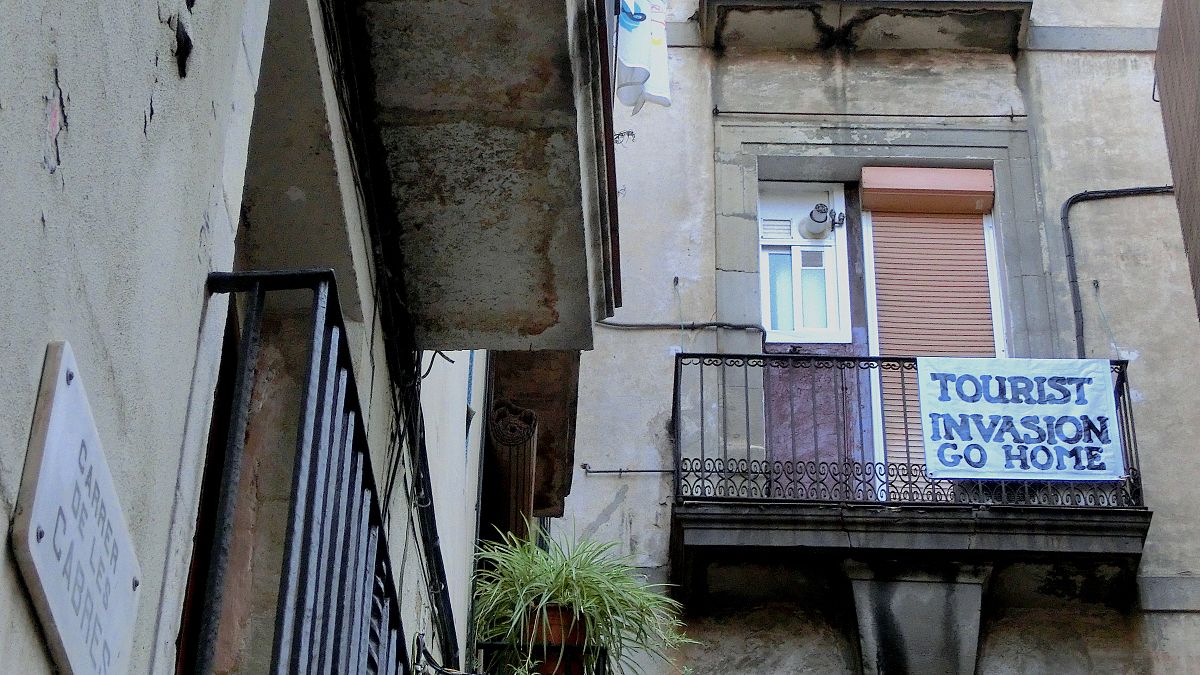Tourism is blamed for bad behaviour and rising house prices.
Renting an apartment to tourists visiting Barcelona can be lucrative. Jordi Mallafré, a property owner who advertises his flat on platforms like Airbnb says he can earn four times more from visitors than he would from a long-term tenant.
“Until the end of the year it’s fully booked and there are already reservations for next year,” he said, noting that he is making far more than the 1,000 euros a month he would have had from a residential let.
According to the Barcelona city council, there are about 10,000 legal tourist apartments and more than 6,000 that are unlicensed, most of them advertised on Airbnb.
The council “has dedicated all possible efforts to fight against illegal practices,” with more inspectors and sanctions, said Janet Sanz, the councillor responsible for housing. In August, after receiving a fine of 600,000 euros, Airbnb committed to removing more than 1,000 illegal flats from its site.
For residents of areas like Barceloneta, where more and more properties are being converted to holiday accomodation, that’s just scratching the surface of the problem. “No tourist flats” can be read on some balconies.
Joan Antoni Hermo says he is fed up of mass tourism and the bad behaviour that often accompanies it. “Fridays, Saturdays and Sundays are awful, with incidents of noise and public urination.”
Not everyone blames the visitors, however. Teresa Travieso, who has a puppet shop in the Gothic Quarter, concedes that “We attribute many things to tourism, but the truth is that incivility exists both among residents and foreigners.”
The growing number of tourist flats, the purchase of buildings by investment companies to build luxury apartments and overall a low supply and high demand have led, according to Joan Balañach, vice president of the Federation of Neighbours Associations of Barcelona, to an increase in rental prices.
The Statistics Department of the city council shows that the average monthly amount has risen from 688 euros in 2014 to 845 in 2017 (+22%), in a city where many monthly salaries are only around 1,000 euros.
“Barcelona is experiencing a new housing bubble,” Balañach said. This situation “is driving people out of their neighbourhoods.” “There are real dramas in families who have been living in the same district all their life and now are forced to leave because they can’t afford the excessive rent increase or their tenancy agreement isn’t renewed.”
However, David Herencia, commercial director of the real estate platform Idealista, said that the impact of tourist apartments is often overstated. “It affects less than you think.” In addition, “in 2017 rental prices have stabilized, which is a sign that that could have peaked.”
This could be good news for Victoria Sanantón, a resident who has been flat hunting for more than three months. “In half a year conditions have become inconceivable.” Many of the available properties measure less than 30 square meters and are in poor condition, she notes.
The Barcelona city council is trying to combat its housing problem with a 160 million euro budget for 2017. The money will be used to buy buildings and prevent large investors from acquiring them; to build new flats to rent at affordable prices; and to offer subsidies to citizens that have difficulties to pay the rent.
By Anna Lladó
